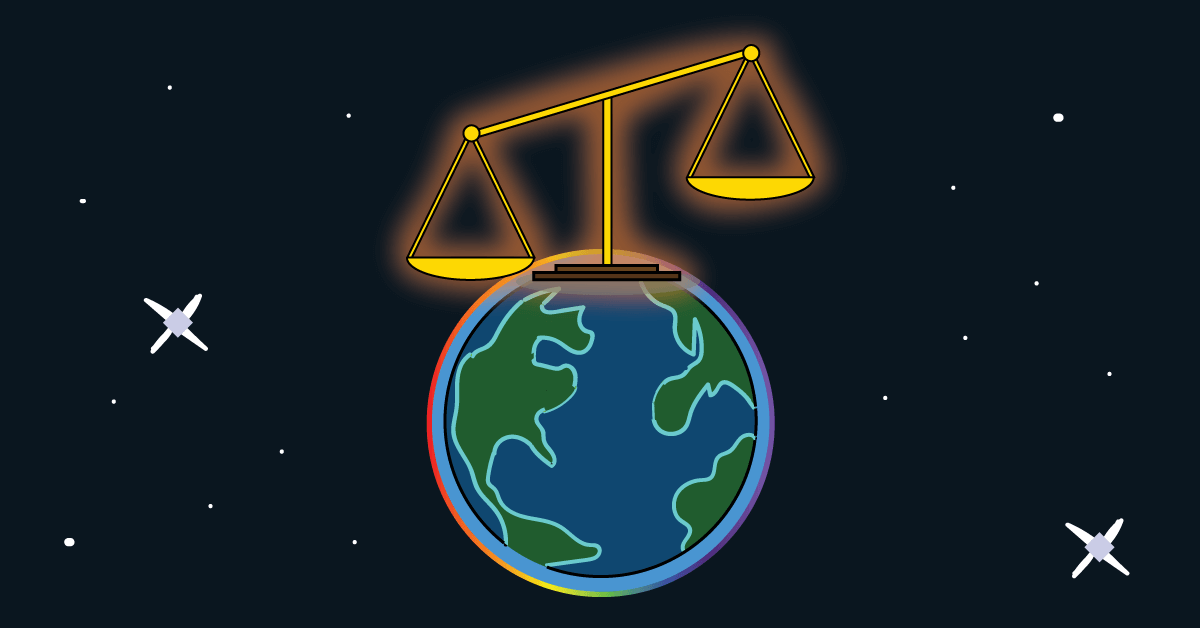The Fallacy of a Just World
Length: • 4 mins
Annotated by Ayush Chaturvedi

In 1965, psychologist Melvin Lerner published a study that would form the basis of the Just World hypothesis. In it, he found that students who were told that another student won the lottery rationalized it by believing that the winner must have worked harder than his peers. This sounds ridiculous on its surface, but if you consider its inverse, you’ll see why this rationalization was plausible.
An example of the inverse at work is the way in which many people internalize homelessness. Rather than seeing homelessness as a chance event that afflicts someone, many people tend to believe that the homeless person did something to deserve it.
“Oh, that’s what happens when you get caught up with drugs.”
“They probably hurt someone and are now living in the street.”
And so on.
The reality, of course, is that randomness is the primary factor in both scenarios. It’s just that it’s much more obvious when we’re dealing with something like the lottery, where probability theory and statistical models govern that realm. But it’s just as pertinent in the problem of homelessness, where chance events and mishaps compound to the point in which the afflicted person must find refuge in the street.
Lerner’s study showed that we try to comfort our intuitions by creating patterns in what is otherwise patternless. That we want to make sense of the world by seeing order in what is actually chaos. This applies not just to the domain of math and science, but also to the humanities.
When people believe in a Just World, they believe that the state someone is in – whether peaceful or miserable – is a consequence of one’s actions. That randomness isn’t the variable guiding the hands of time, but rather one’s agency. While this may seem intuitive, it’s becoming clear to me that the belief in a Just World is one of the leading causes of human suffering.
First off, I want to issue a caveat. There are some clear instances where a belief in a Just World is necessary for order. Without it, as the name suggests, justice would be impossible. Chief among these instances would be criminal activity, where a person’s deviant behavior is identified as being dangerous, and is punished to remedy their mindstate and/or isolate them from the public. From the perspective of justice, taking responsibility for your agency is critical to the functioning of a healthy society.
But other than this, it’s hard to justify the existence of a Just World, where people believe that their actions are directly responsible for their outcomes.
Take segregation, for example. At one point, many people in the United States believed that there was something black people did (or did not do) to warrant their treatment in society. That they didn’t work hard enough or didn’t try their best to be “responsible” citizens like their white counterparts. Of course, this is just ridiculous, given that black people were literally segregated away and had to overcome unfathomable obstacles that were imposed upon them. But if you believed in a Just World in the early 1900s, then you’d think that all this was somehow deserved.
The Just World hypothesis breaks down even further as we move away from sociology (the study of the collective) and into psychology (the study of a singular mind).
Perhaps one of the worst things you could feel as a human being is shame. Simply put, shame is when you believe that you’re unworthy of love, and that you deserve to feel this way as well. That latter part is what makes shame especially pernicious, and much of this is driven by the belief that there’s a justified reason for you to feel this way.
Psychologist Dorothy Rowe made an interesting observation here that I’d like to highlight. She argued that depression is closely linked to the belief in a Just World, as people that are depressed tend to believe there’s a reason why they are. Depression is often accelerated by this search for its cause, which is often hopeless because much of it is a neurobiological phenomenon. But in most cases, the knowledge of that simply isn’t enough.
Shame and depression are closely linked because both are rooted in the illusion of causality. Shame results from the belief that you did something that makes you unlovable, while depression is accentuated from the belief that you did something that caused it to arise. But the reality is that there is no clear causation in both of those things; they are largely the result of chaos that you had no agency in controlling.
One of the quickest ways to accept who you are is to free yourself from the thought that you deserve anything. You don’t deserve to feel shame about something you said, and the moment you realize that, it dissipates. You don’t deserve to feel superior because of some accomplishment, and the moment you realize that, it dissipates.
To see through the illusion of a Just World is to see that there are no patterns governing this world. There is just consciousness, the appearances that emerge within it, and the randomness that permeates the present moment. That’s all there is and all there ever will be, so the best thing we can do is to simply enjoy it while we can.
For more stories and reflections of this nature: